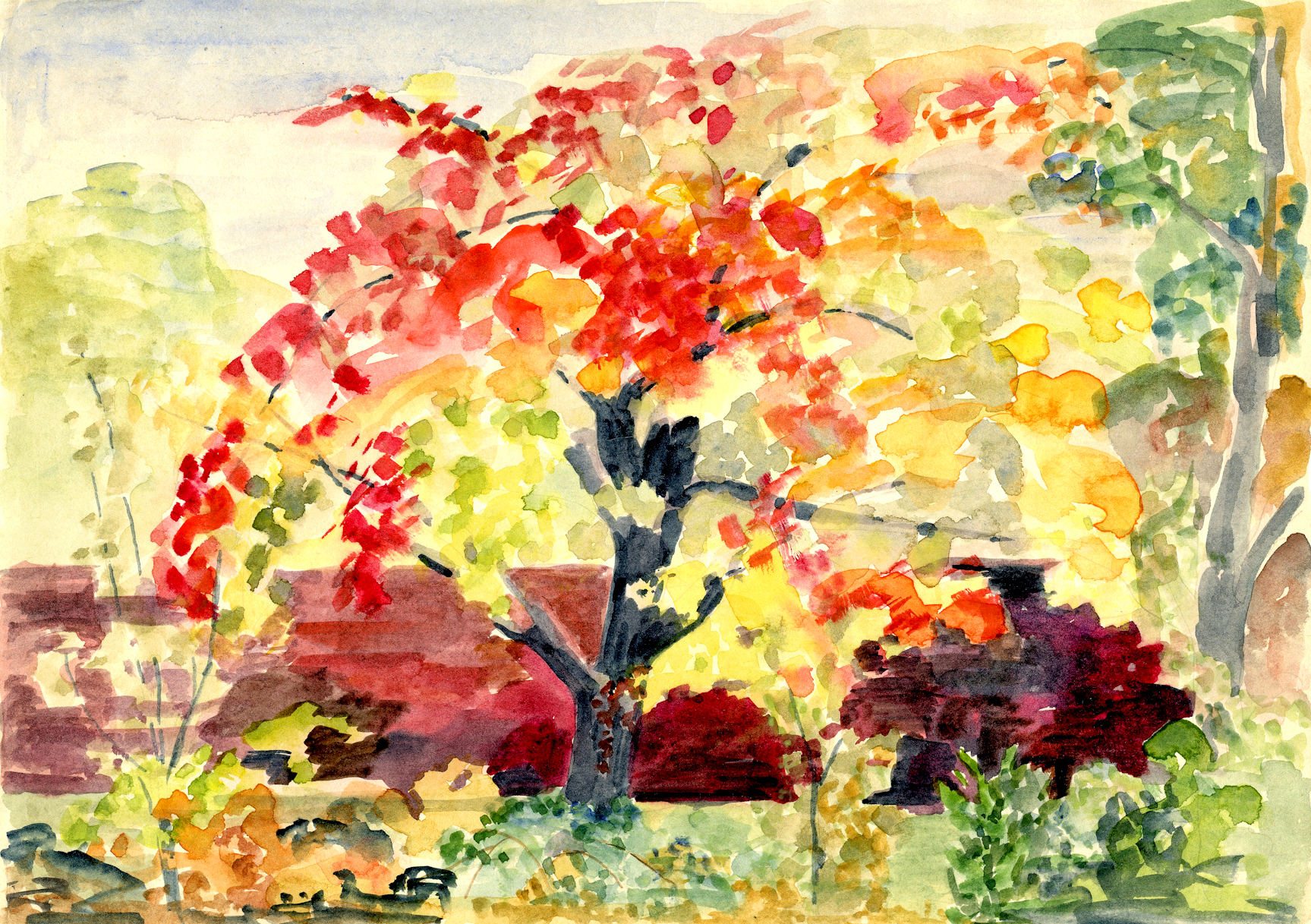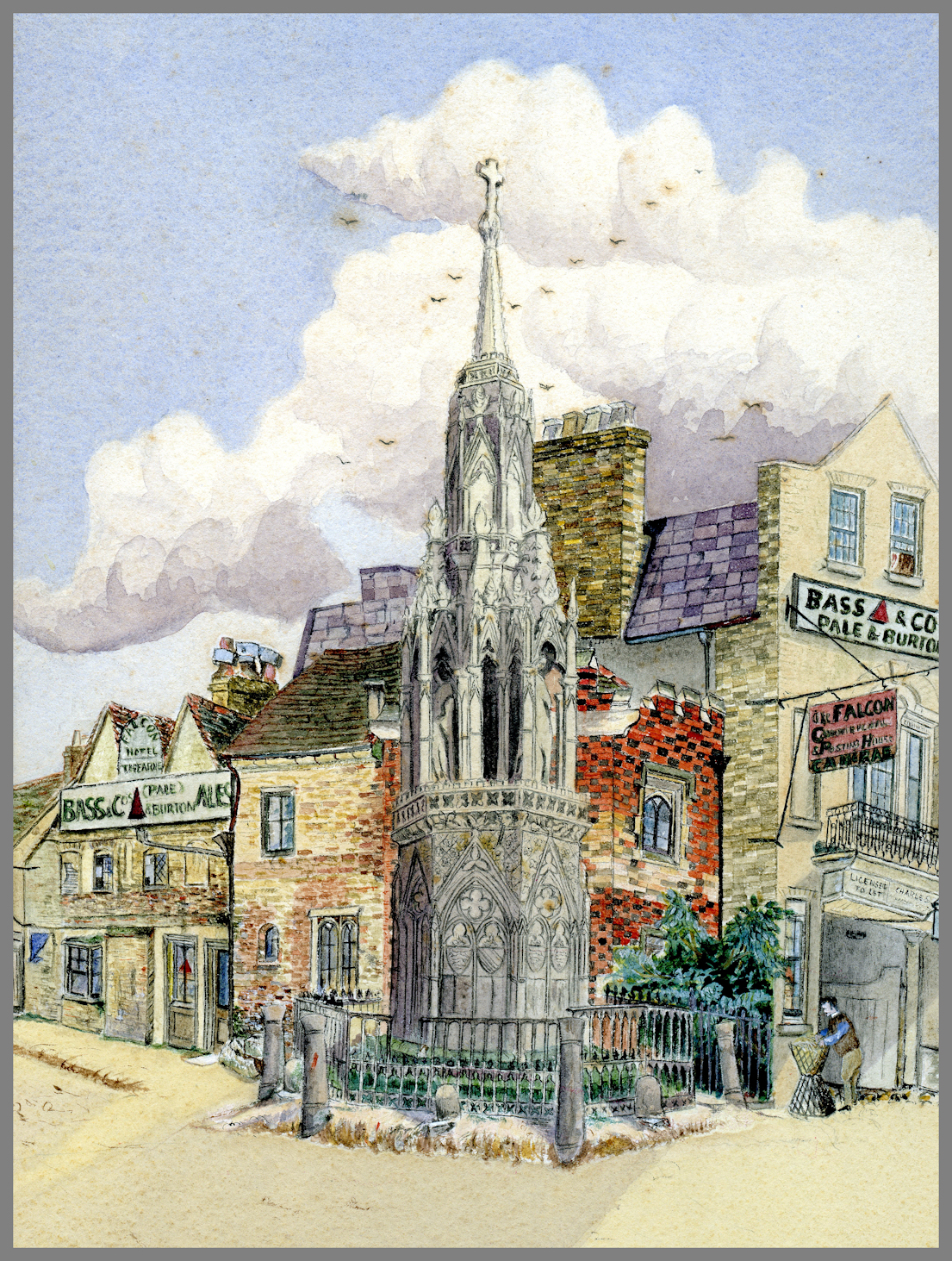
(watercolour, c.1980)
Click the image for a larger view
As regular readers will know I was brought up in Waltham Cross, Hertfordshire – an area of huge historical interest some of which I’ve blogged about before (see, inter alia, here, here and here).
Waltham Cross – the first stop for stage coaches from London going north to Cambridge and beyond – got it’s name from the Eleanor Cross which still stands in the centre of the town. As a kid one often doesn’t think a great deal about such historic artefacts. However my father was interested in the Crosses and it has rubbed off on me (along with much else of the local history) despite not having lived there for 45+ years.

The Eleanor Crosses were built between 1291 and about 1295 at the behest of King Edward I as memorials to this wife Eleanor of Castile, who died at Harby, Nottinghamshire in late November 1290. Her body was brought south to be buried in Westminster Abbey on 17 December 1290; a journey which took two weeks.
Wherever the procession stopped for the night, usually at a monastery, Edward had a memorial cross erected. There were 12 crosses in all, of which only Geddington and Hardingstone (both in Northamptonshire) plus Waltham survive.
(No, not including Charing Cross. The cross which stands outside Charing Cross Station in London is a Victorian recreation and is a couple of hundred yards from the site of the original cross.)
I have a fragile typescript of a talk on the Eleanor Crosses which my father (Bob Marshall, 1920-2006) gave to the Cheshunt WEA in the mid-1950s. I never managed to convince him that (despite its age) the talk should be published – which is one reason it has not been fully referenced. Nevertheless I’ve bitten the bullet, had the text transcribed, and make it available here as a PDF file:
In reading the text do bear in mind its age and that historical research will have moved on, so current knowledge may differ from what my father presents. However I feel the talk is worth preserving as part of my father’s legacy and as an introduction to the Eleanor Crosses.